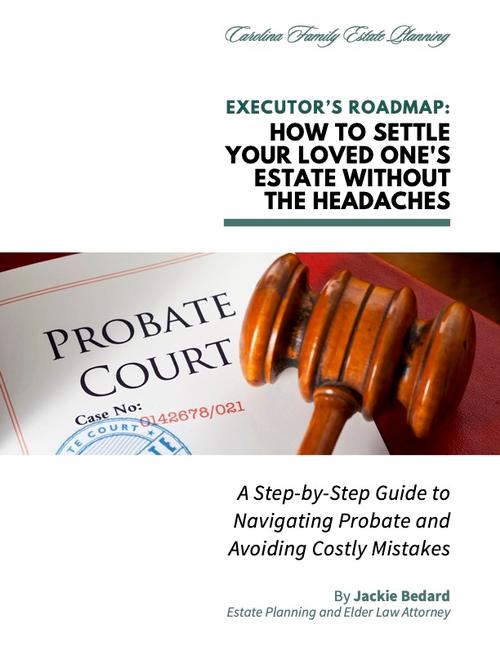Yes. A common misconception is that because a fully-funded living trust can be used to avoid probate, there is nothing to be done. However, while the added work of a formal probate process is not needed, there are still tasks to be completed, such as obtaining a taxpayer identification number for the trust, updating the titling of assets, settling any final debts and expenses of the estate, and final tax returns. The trust agreement will then include provisions on what should be done with the assets next—such as outright distributions or distributions to certain sub-trusts.
If the deceased had a fully-funded living trust in North Carolina, do I need to do anything?
Free Estate Planning Resources & Reports

Executor's Roadmap
Our Executor’s Roadmap is here to help you manage each step with confidence, avoid common pitfalls, and protect both the estate and yourself.
More InfoProtect Your Legacy
Call us at 919-443-3035 to get started.
Ready To Get Started?
The purpose of the Needs Assessment Call is to:
- Briefly discuss your needs and goals
- Discuss best next steps to help you towards your goals
- It typically only takes 15 minutes or less!
North Carolina Estate Planning Attorney Serving the Following Cities and Areas:
- Cary (Main Office)
- Apex
- Clayton
- Durham
- Holly Springs
- Morrisville
- Raleigh
- All of North Carolina

